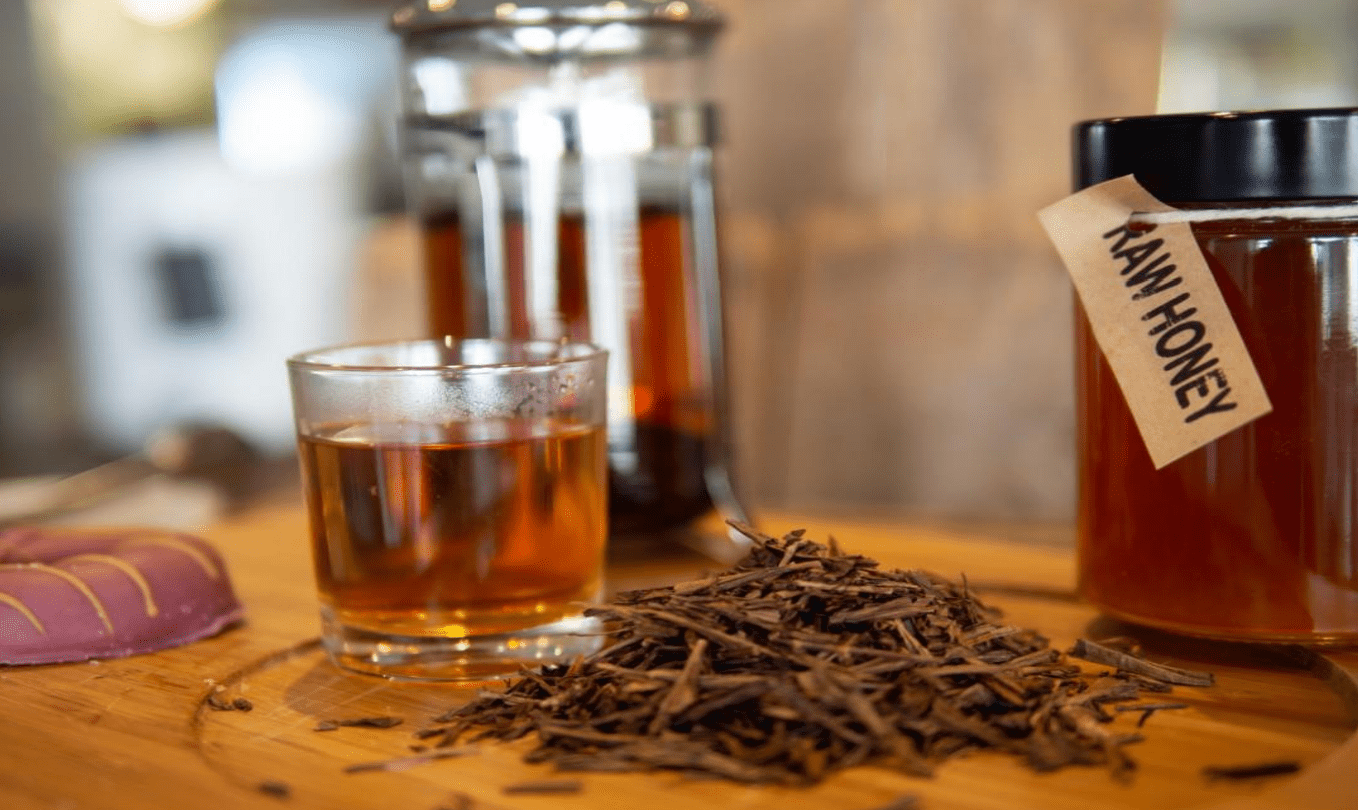
Hojicha is a roasted green tea originating from Japan that has been gaining popularity in recent years. The tea is made from roasted leaves of the Camellia sinensis plant, which gives it a distinct toasty flavor and aroma. In addition to its unique taste, hojicha has been found to offer several health benefits, including aiding weight loss.
Suppresses Appetite
Hojicha tea contains a high concentration of catechins, which are antioxidants found in tea leaves. Studies have shown that catechins can reduce appetite and increase feelings of fullness, leading to lower calorie intake throughout the day. In a study published in the Journal of Functional Foods, researchers found that drinking green tea, which contains similar levels of catechins to hojicha, led to decreased appetite and increased satiety in participants.
Boosts Metabolism
Hojicha tea also contains caffeine, which can boost metabolic rate and increase energy expenditure. This can lead to greater calorie burn throughout the day, which can aid in weight loss. A study published in the International Journal of Obesity found that caffeine intake was associated with greater weight loss in obese individuals.
Reduces Stress
Stress can be a major contributor to weight gain and obesity. Hojicha contains theanine, an amino acid that has been shown to reduce stress and anxiety in individuals. By reducing stress levels, hojicha may help prevent stress-related overeating, which can contribute to weight gain.
Low in Calories
Hojicha tea is naturally low in calories, with a typical serving containing less than five calories. This makes it a great alternative to high-calorie beverages like soda and juice, which can contribute to weight gain over time.
Conclusion
hojicha tea offers several potential benefits for weight loss, including appetite suppression, increased metabolism, and low-calorie content. However, it’s important to note that hojicha should not be relied upon as a sole solution for weight loss. Maintaining a calorie deficit, engaging in regular exercise, and consuming a balanced diet are all important factors in achieving and maintaining a healthy weight.
References:
1. Hursel, R., Viechtbauer, W., & Westerterp-Plantenga, M. S. (2009). The effects of green tea on weight loss and weight maintenance: a meta-analysis. International Journal of Obesity, 33(9), 956-961.
2. Jeszka-Skowron, M., Zgoła-Grześkowiak, A., & Grześkowiak, T. (2019). The influence of green tea on appetite and body weight. Journal of Functional Foods, 60, 103413.
3. Smith, A. P., Brockman, P., Flynn, R., & Maben, A. (2021). The effects of caffeine and other methylxanthines on cognitive performance, mood, and alertness. Nutrition Reviews, 79(6), 601-618.
4. Hursel, R., Westerterp-Plantenga, M. S., & Westerterp, K. R. (2011). Thermogenic ingredients and body weight regulation. International Journal of Obesity, 35(4), 594-604.



